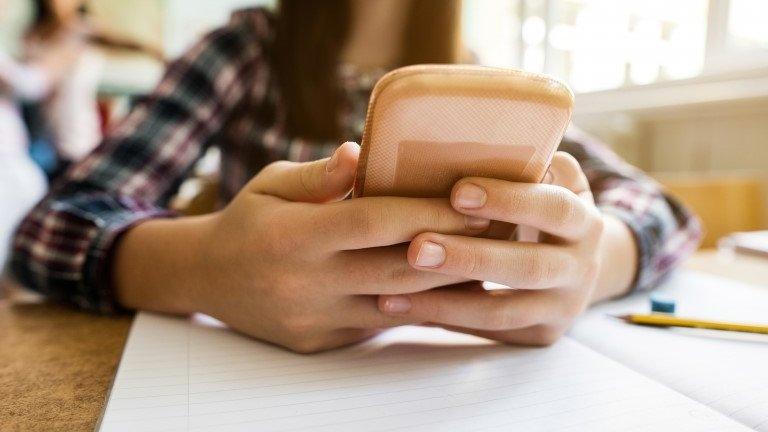Bullying: Schoolmates 'told me to die' in online posts
- Published
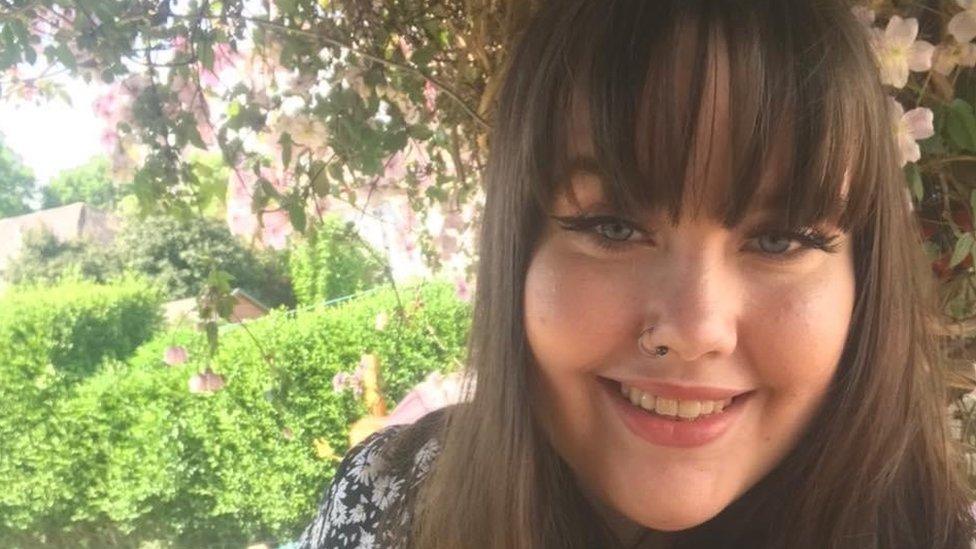
Charley Oliver-Holland said the number of different social media channels meant "bullying just doesn't stop"
Warning: This report contains offensive language.
"I went online to make friends with people who were similar to me, so I could be myself, but when the other kids in school found my profile they made fun out of me."
About one in five children aged 10-15 in England and Wales suffered at least one form of online bullying in the year to March 2020, according to the Office for National Statistics (ONS).
Charley Oliver-Holland was 12 when she started getting bullied. She always had friends, but did not really fit in at high school.
"I had an Instagram page that I made of my favourite band and it allowed me to make friends online with similar interests, but when people from school found the page, I ended up getting so much grief," she said.
The 17-year-old from Caldicot, Monmouthshire, remembers being called dyke, emo, fat, as well as being told to die and go cut herself by people at her school, as well as total strangers.
"People saw I was different and expressing myself and didn't like it, because I didn't fit in, they would call me all sorts of names.
"It would be random people, I wouldn't even know them and they would post awful things. As a 12-year-old it's not a nice thing to hear and you take it to heart."
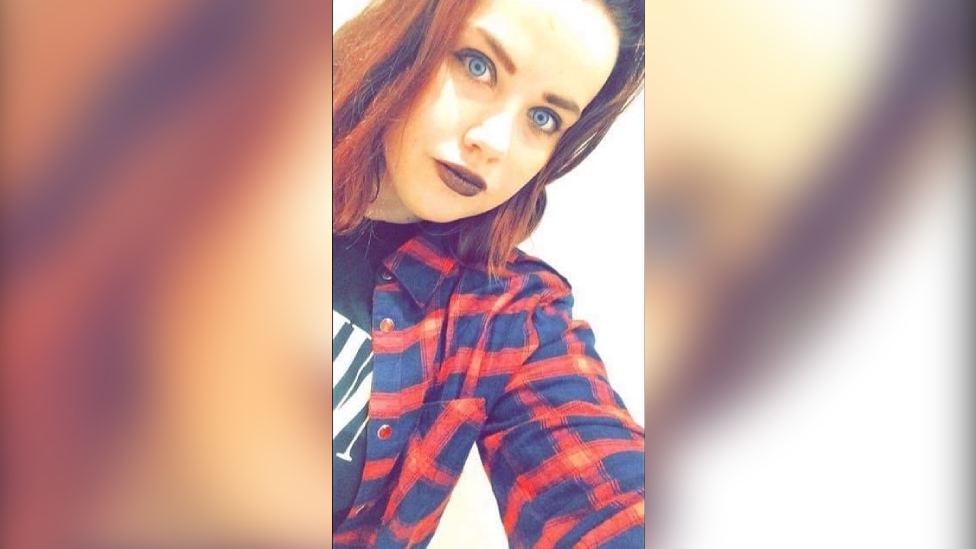
Charley was targeted by bullies after posting pictures online of herself with black lipstick and hair
She said people got a feeling of invincibility when online, prompting them to say things they never would in person.
"All you need is an email address and you can make a fake account and say what you want about whoever. There were so many people in school who, when one account was shut down, they would just make another, it's really scary.
"People can be really horrible when they don't think there are consequences to their actions, they come across lovely in person but when they are on their phone in their bedroom they change.
"At school, you get bullied and can go home and escape from it, but with online it's constant, you can't escape from it, it is always there."
Charley said some of her friends did not go into school due to the severity of the online bullying they suffered and there were times when she did not want to go in either.
"I would just feel like an outcast and that people would hold that against me. At 12 years old it feels like the worst thing that can happen to you," she said.
"At that age there aren't many things that are important, but your social status is and how you are viewed by other people, everyone talking about me, I just didn't want to be there, school just seemed like such a toxic environment."
Charley feels online bullying behaviour is normalised and - because so many people get involved - it makes it harder to stop or report.
The ONS report - which featured new data it said should be interpreted with caution - showed more than half of those children who experienced online bullying would not describe what happened as bullying, while one in four did not report it to anyone.
2,200 children surveyed
19%children aged 10 to 15 years in England and Wales experienced at least one type of online bullying
52%of those children said they would not describe these behaviours as "bullying"
26%did not report their experiences
72% of children who experienced online bullying experienced some of it at school or during school time
"I didn't feel like I could tell anyone, it feels like there is nothing you can do, once it's happening. If you report it to the school what are they going to do? I did tell my mum about it and she did tell me to get off my phone, but it's difficult.
"It consumes you, I was always on my phone, trying to see what people were saying about me, what nasty messages were being posted.
"At that age social media is so important, you beg your parents to allow you to have a profile because you don't want to be the odd one out.
"I just felt alone, people would say nasty comments about my weight, about my sexuality, saying I had no friends, just putting me down. People would bully others for the phone that they have, it would be anything."
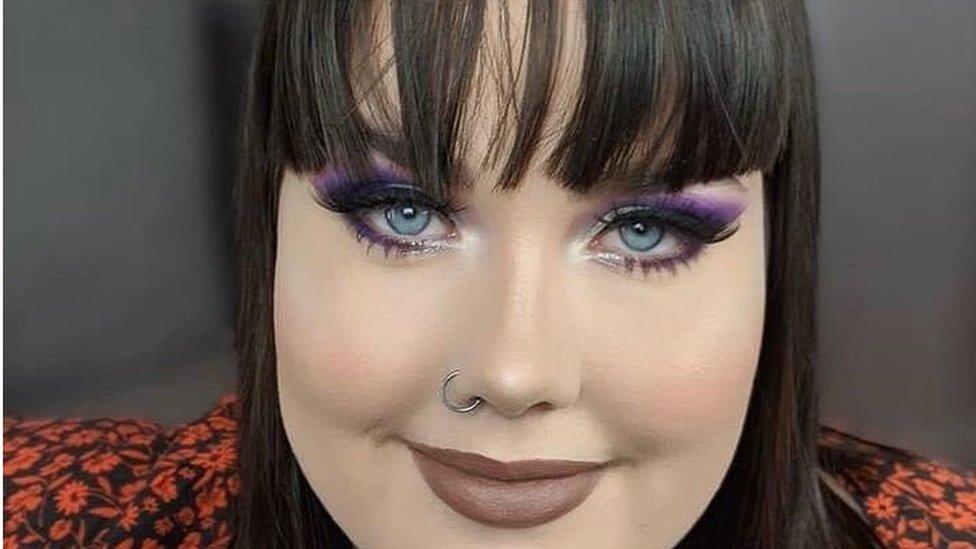
Charley says she suffered "relentless" bullying at school and online
Charley said she was now more careful with what she posts online, but the bullying she experienced five years ago still stays with her.
"Walking past a group of boys, it takes me back to when I was in school, and I worry if they are going to say something," she added.
"I think there needs to be better education in schools for young people about online bullying and taking a break from social media.
"I also think that to use those accounts you should have to submit proof to prove who you are, so you can't have fake accounts and are held accountable for what you say."
'No switch-off'
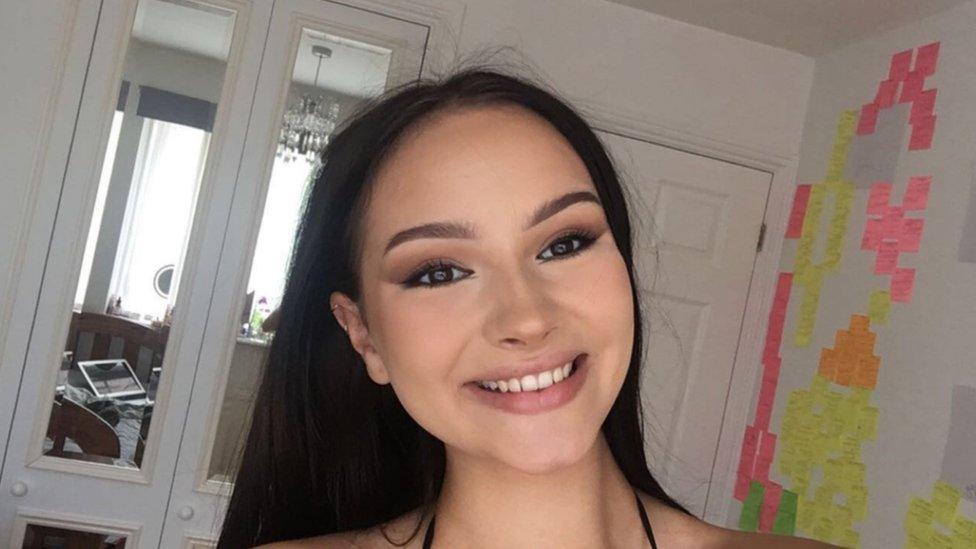
Olivia Barbieri said online bullying leaves people with "no switch-off and no safe place"
Olivia Barbieri said she has always been different and was bullied throughout her school life, but when she got her own social media accounts at the age of 13, she felt it got even worse.
"Face-to-face bullying is horrible and I have experienced that with people from work, but online is 100% worse. People have so much more confidence online and say whatever they want."
The 18-year-old from Caldicot has anxiety and said she did not experience anything really bad until a couple of weeks ago.
"I did an Instagram Live event with this guy and it just was awful, people were commenting on my appearance, saying I belonged in a mental asylum, that I should be aborted, just stuff that was irrelevant," she said.
"I had people I considered as friends sending me death threats. I ended up deleting all my social media channels and changing my name on my profiles, I had to because he doxxed me. It was really horrible.
"It's not just about one post or one video, it's everything, it all adds up, and online it's so difficult to report - social media platforms need to take more responsibility.
"If it wasn't for my family, partner and close friends, feeling I could turn to them and speak with them I don't know if I would be here today."
In a statement, Facebook, which owns Instagram, said: "We are committed to leading the industry in the fight against online bullying. We have invested in technology to detect and remove offensive content from Instagram, expanded our dedicated safety and security team to over 35,000 people, and built strong partnerships with experts to help keep people safe."
Founder of charity BulliesOut, Linda James, said the ONS statistics reflected what she had seen, but feels the true number of victims could be much higher.
"A lot of people hide bullying under the guise of banter and joking when it isn't, so I fear that the percentages of those being bullied online could be much higher than the figures seen by ONS," she said.
"We as a charity are seeing the trends that online bullying is increasing, and this is then spilling into other forms of bullying including physical.
"Online bullying is much more emotionally damaging and traumatising for young people than other forms as it is 24/7, it's relentless, it will have a massive impact on their mental health as they are unable to switch off.
"With more young people at home [due to coronavirus] they are online more and online for longer, there is nothing for them to do apart from being online and the impact this is going to have on them on their self-esteem and confidence is going to be horrific."

She feels more education is needed to understand and support young people: "It isn't one person's responsibility, parents need to monitor their children and schools need to take responsibility when it comes to online bullying and have a zero-tolerance policy to all forms of bullying.
"There needs to be more education about what you do online and your digital footprint, so young people are mindful of their behaviour online."
Dr Sangeet Bhullar, executive director of WISE KIDS, which promotes safe internet use, said: "We need to look at creating a culture of support where a young person feels comfortable talking about the social media platforms they access and what interaction they have. There needs to be greater accountability with schools and parents.
"I think we are in a better situation than we have been in as there is a lot more awareness about the situation, but we need to look at developing a sense of wellbeing and self-worth in young people, which will strengthen their ability to deal with uncomfortable situations such as online bullying."
The Welsh Government said: "Challenging bullying within education remains a key priority for us and we are committed to ensuring all our learners are properly supported to achieve their full potential.
"It has never been more important to equip our children and young people with the knowledge, skills and resilience to navigate the online world.
"Protecting children and young people from harmful activity online is critical and it is therefore vital that we provide an education system that enables our learners to embrace technology and contribute positively online."
- Published2 January 2019
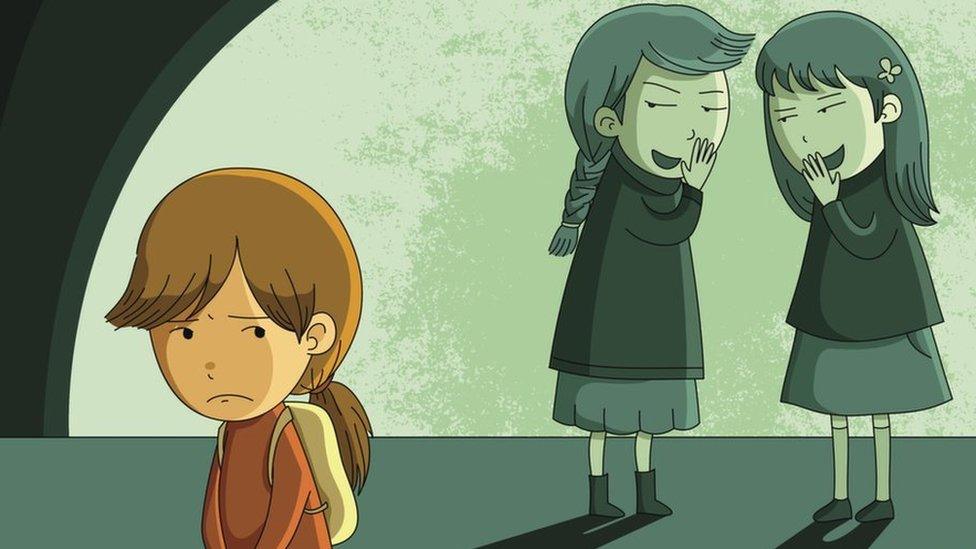
- Published26 February 2018
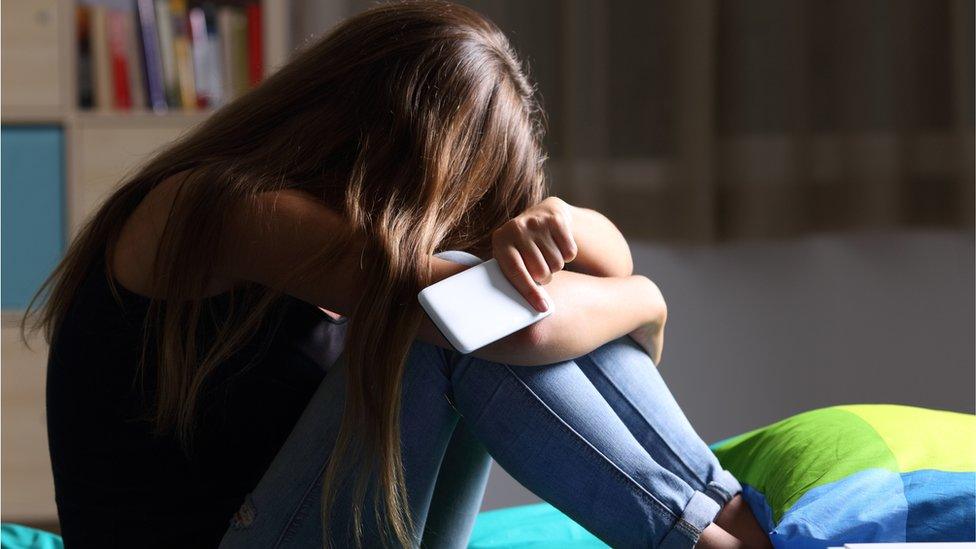
- Published21 October 2017
